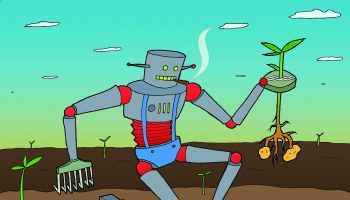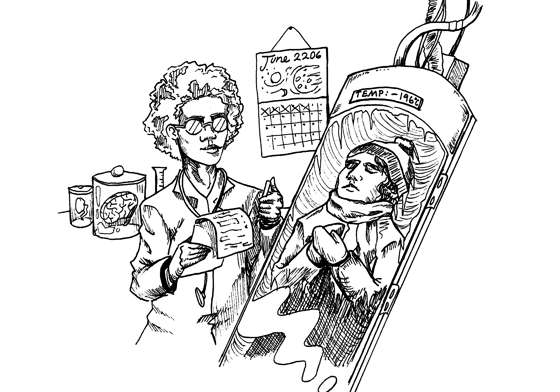Scientism: the uncritical application of scientific or quasi-scientifi c methods to inappropriate fields of study or investigation – Collins English Dictionary
Science, as a paradigm, has had remarkable success in answering the questions it was created to answer, namely those that relate to physical reality. This has led many to wallow in the belief that science is the only legitimate paradigm with which to answer any and all questions. Although science isn’t a religion, many people misuse science in the same way that many others misuse religion — they apply the paradigm to inappropriate questions, and dismiss alternative answers.
Signs that suggest a person is a follower of scientism:
– They deride something as being unscientific, when it has nothing to do with science.
– They quote a famous scientist, or a popular writer, as if the quote ends the argument.
– They say science can solve any problem, often going further by saying that science will solve all problems.
– They dismiss hypotheses that challenge what they perceive as the scientific status quo, for example claiming that an idea is “un-Darwian”, even though they also cite science’s ability to reject long-held ideas in favour of new ones that better fit the evidence as making the field superior.
– They believe science will allow them to live forever in some way, and if they die science will resurrect them to live forever.
– They believe science will inevitably create a utopia.
For the most part, these behaviours are no more damaging than other irrational modes of argument, but there is one result of this belief that is a problem: when people abdicate the responsibility of altering their behaviour to make the world a better place, because that is the job of science.
They think it doesn’t matter if species go extinct and eco-systems get destroyed, because science will just recreate them. It doesn’t matter if wealth inequality is increasing, because science will invent new things that will grow the economy. It doesn’t matter if their products create new forms of pollution, because science will just clean it up.
However, time and time again science has been shown to be inadequate to the task of saving the world on its own. Usually, the solution to one problem creates one or more new problems that need to be solved, and sometimes the negative effects are hard to predict. When people proposed the use of chlorofluro-carbons (CFCs) as a refrigerant, to replace the toxic compounds used at the time, it is understandable that looking at the structure of CFC, one would not have made the leap to the destruction of the ozone layer.
Often the consequences are entirely predictable, however. When antibiotics, used in intensive farming to increase the growth rate of animals, led to deadly bacteria which were resistant to multiple types of antibiotics, that consequence was obvious and inevitable.
More damningly for scientism, oftentimes science simply can’t solve a problem. Often, the ‘Green Revolution’ is used as an example of the omnipotence of science, but I would contend that it is in fact a demonstration of the limitations of science. The Green Revolution aimed to solve the problem of chronic hunger in many parts of the world by increasing crop yield. New farming techniques such as irrigation and artificial fertiliser use, as well as improved seed strains, were introduced to developing nations in the 1970s. As a result, cereal output doubled over the next few decades, which would be a clear win, if the population hadn’t also doubled over the same time period, increasing the total number of people living with hunger.
According to the United Nations, “the number of hungry people in the world grew by 15 million from 1970 to 1980, to 475 million … [then the rate grew faster] reaching 512 million in 1985”. The people living in hunger didn’t own land, and didn’t benefit from the increased crop yields. Additionally, the increased population and profitability of farmland exacerbated the problem of wilderness areas being cleared.
Is the problem intractable? No. Hunger continued to increase, peaking at more than a billion people during the 1990s, but since then has been steadily declining. The change the realisation that using science to increase crop yields wasn’t enough without social change to reduce and reverse population growth, economic change to direct funds to the most poor and lower income inequality, and political change to provide people the freedom to control and improve their lives. None of this could be provided by science alone.
Science will be instrumental in solving problems to make the world a better place, but on its own, unscrupulous use will be at the expense of us all. Other disciplines, such as sociology, politcal science and social justice need to be supported by science so it can make appropriate contributions to society, and the world.
Individually, we need to stop abdicating personal responsibility in favour of relying on science (or anything else), and accept that we are accountable for the changes we make to the world, and obliged to make our effect a positive one.


